Orthotics for Kids with Knock Knees – Let’s Improve your Kids’ Posture!
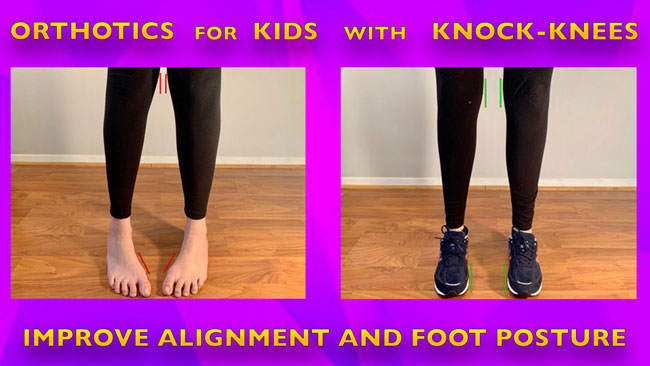
Do you have a child with knock knees and want to improve their walking pattern and posture? Children with knock knees often struggle with balance, stability, and proper alignment, which can affect how they walk and stand. In this guide, I share one specific type of orthotic—gait plates—that can help improve your child’s knock knee condition by gently realigning the feet and legs. By changing how the foot pushes off the ground, gait plates encourage better hip and leg positioning, supporting healthier alignment and helping reduce knock knees over time.
I’m not a medical professional—I’m a specialized children’s shoe fitter who works closely with physical and occupational therapists to fit kids in supportive shoes and orthotics. For an accurate diagnosis, a podiatrist or physical therapist should perform a full evaluation to identify the cause of your child’s knock knees. They can determine whether it’s part of normal development—which often improves naturally by ages 7 to 8—or if treatment or intervention is needed.
When Should Parents Be Concerned About Knock Knees?
Knock knees are often part of normal development in young children, and many cases improve naturally as a child grows. However, that doesn’t mean parents should ignore what they see. If your child shows visible signs of flat feet, poor balance, frequent tripping, or uneven walking, it’s a good idea to take action sooner rather than later. You don’t have to wait until a certain age to get support—especially if foot alignment is clearly affecting posture and movement. Early intervention can be more effective, helping guide proper development before habits and alignment problems become harder to correct.
How to Check If Your Child Has Knock Knees?
If you’re unsure whether your child has knock knees, I recommend having them stand up straight, ensuring they are looking straight ahead. Then, check if their knees are touching each other. You can also refer to the images below to help visualize what a child with knock knees looks like.
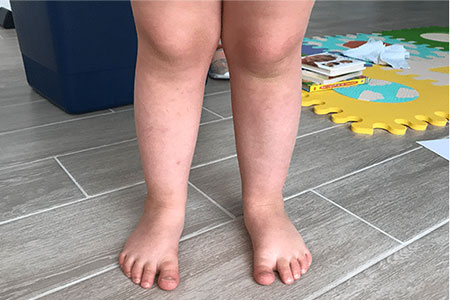

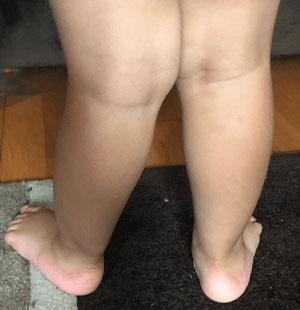
Children with knock knees are doing something that is biomechanically incorrect when they walk or run, and that will have a lasting effect on your child’s muscle structure. Something so simple such as providing your child with the correct pair of shoes and orthotics can have a huge impact in the way your child walks and runs.
My Experience as a Shoe Fitter
As a shoe fitter, my goal is to help families find the best solutions for their children’s foot conditions. Working closely with physical therapists (PTs) and occupational therapists (OTs), I have gained valuable insights into the importance of orthotics and supportive shoes for children with knock knees. Collaborating with these professionals has allowed me to understand the specific needs of children and how to tailor shoe fittings to meet those needs effectively.
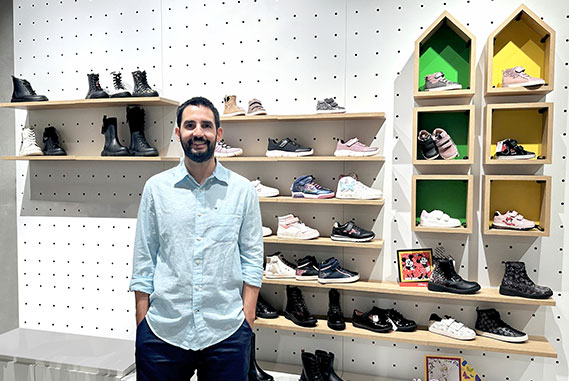
After testing countless shoes and orthotics, I discovered a specific combination that has helped many children with knock knees improve their alignment and stability—and it may help your child too. Please note that the orthotic I recommend is intended for children with mild to moderate knock knees, and is not suitable for severe cases.
Before and After: The Impact of Gait Plates and Supportive Shoes
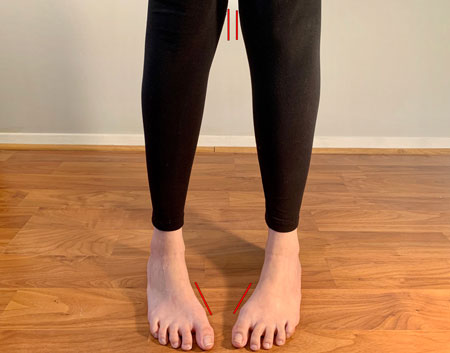
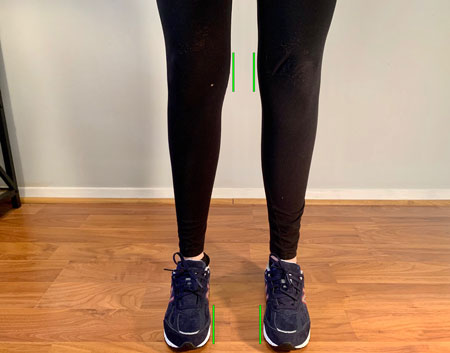
What Makes Gait Plates Effective for Knock Knees?
LittleSteps gait plates help guide your child’s feet and legs into better alignment. For kids with knock knees, they gently adjust how the foot pushes off the ground, supporting straighter knees, improved posture, and more stable walking—all without surgery or invasive treatment.

One of the things I love the most about gait plates is how they deliver excellent results, and they are not as invasive as other orthotics such as AFOs or SMOs.
How effective this orthotic will be in helping realign your child’s feet and legs depends on the degree of your child’s knock knee condition. With that said, this is one of the best prefabricated orthotic on the market for helping treat, prevent, and control knock knees.
Where Can You Buy littleSTEPS Gait Plates?

Order littleSTEPS gait plates from their official website.
To place an order for littleSTEPS® gait plates, you must submit this Referral Code: JVFCS100121 during the ordering process.
This orthotic ships worldwide. Within the USA, delivery takes 10–15 days depending on location and shipping method. International shipping is available at a higher cost.
These gait plate orthotics provide an affordable alternative to custom orthoses. It’s important to note that results can vary depending on factors such as the severity of your child’s knock-knees.
What Gait Plate Size Should You Order?
The size chart below shows what gait plate size to order based on your child’s shoe size:
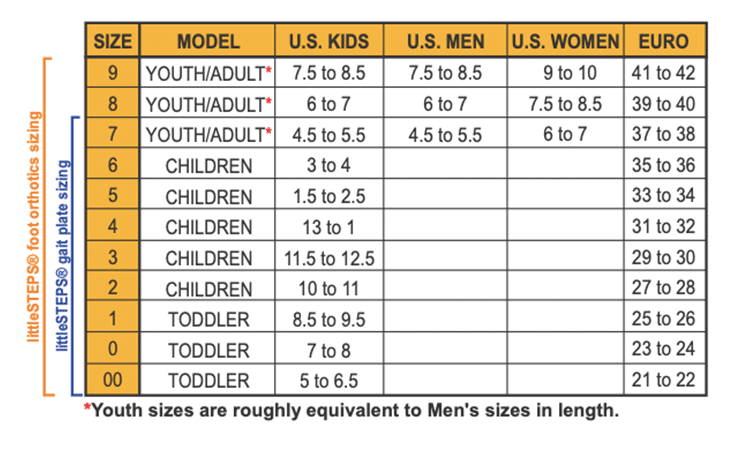
I usually suggest that parents wait 10 to 12 months to see if the orthotics and the shoes have made a difference in improving their child’s knock knees, walking gait, and overall posture.
Another great benefit of these orthotics is that they fit right on top of your child’s existing shoe insoles without taking up extra space.
The Role of Supportive Shoes for Kids with Knock Knees
Now that you know which are the best orthotic for kids with knock knees, you need to find a pair of supportive shoes that will accommodate the orthotic. The right combination of orthotics and supportive footwear can significantly enhance a child’s mobility and comfort. The shoes and the orthotics work together to help your child walk and run straighter.
If you fit a pair of orthotics in a pair of unsupportive shoes, your child won’t get any of the benefits that the shoes have to offer and vice versa. If you already have shoes at home, please make sure that they provide these important features:
Stable Base of Support: The shoes must provide a stable base of support to hold the orthotic in place and reduce the impact that your child’s feet take every time they come in contact with the ground. This support is essential for distributing weight evenly and maintaining proper foot alignment.
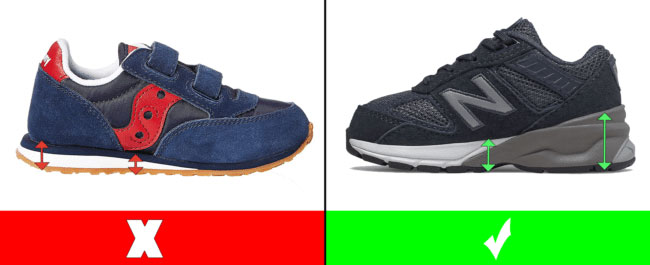
Firm Heel Counters: A sturdy heel counter provides support and prevents excessive inward rolling of the foot. This feature is crucial in maintaining proper alignment during movement.
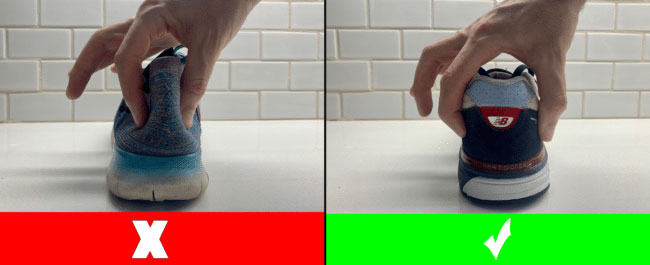
Extra Depth: Shoes that provide extra depth allow for the orthotic to sit deeply inside the shoes, which helps prevent giving children the impression that their feet are coming out of the shoes. If the shoes are not deep enough, the top of your child’s feet (instep) will rub against the top part of the shoes.
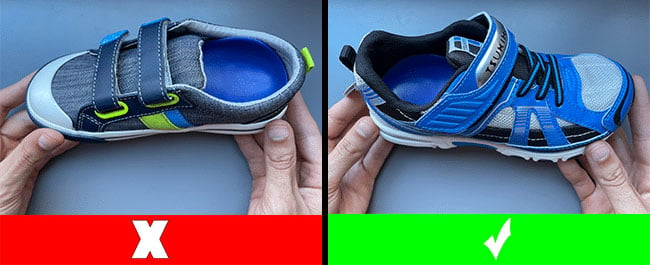
Access My Resource on Supportive Shoes
For those interested in learning more about selecting supportive shoes for orthotics, I offer a comprehensive resource that guides you through the process.
How to Tie Shoes with Orthotics
You probably notice how most of the shoes I recommend provide laces instead of Velcro closure. The main reason for this is that shoelaces provide better support and stability to your child and also make the orthotics fit better inside the shoes. Therefore, I suggest that you apply the shoe lacing technique outline in another article.
Watch My Youtube Video to Learn More About These Orthotics
Orthotics Insoles for Knock Knees – My Final Thoughts
Remember that the orthotic I recommend works for mild to moderate cases of children with knock knees. If your child has a more severe case, then you will need to have your child fitted for an ankle brace orthotic or a pair of derotation straps which have proven to be extremely effective. Fitting these devices is very different from fitting an orthotic, and is not an easy task to do, but if you must do it from your house, please reach out to me and I will show you exactly how to do it.
The first seven years of a child’s life are their “golden years of treatment opportunity”. During these years permanent structural changes of the foot and lower extremity may be relatively easily obtained with treatments such as orthotics, supportive shoes, and therapeutic exercises. Proactive measures, such as using gait plates and ensuring proper shoe fit, can lead to significant improvements and prevent issues later in life.

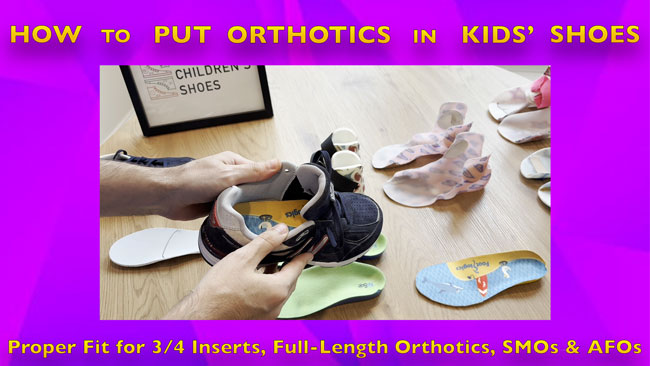
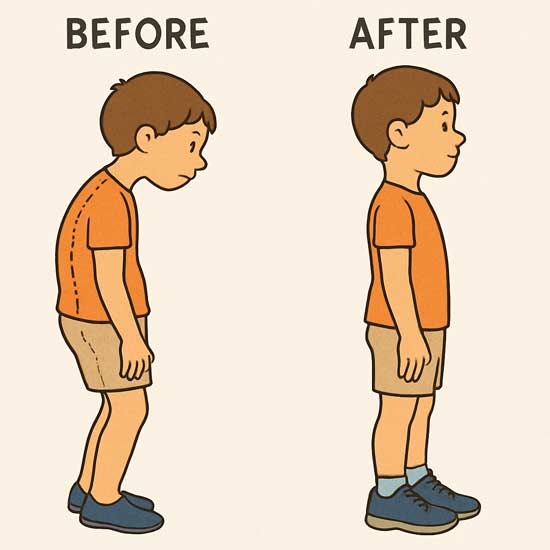
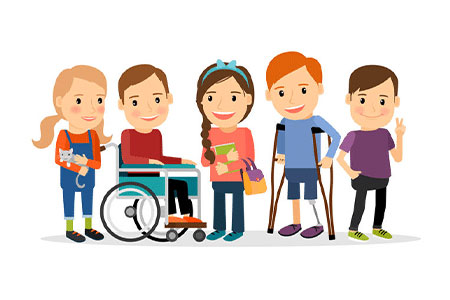
i like this article, it has a lot of info i need to know, thanks for sharing
I am glad you find the article informative!
My 4 year old son has knock knee I want to correct it with your special shoes .
Hi Gloria,
Sure, just make sure that you order the correct shoe size for your son.
Please I am in serious need of Orthotics for Kids with Knock Knees. He has been diagnosed, he has a knock knee because he is deficient of Vitamin as he is Lactose Intolerant.
I need the orthotic shoe for my son ( he is 3 years and 10 months, will be 4 by June 6, 2020).
Please contact me on how to get it or do you have stores/affiliates in Nigeria.
Please treat as utmost priority.
Thank you so much for your help.
Hello Mr. Olowookere –
Before I can recommend a pair of orthotics for your child, I need to know what degree of knock knees he is dealing with. Please send me pictures of your son’s feet and legs to this email address: fittingchildrensshoes@gmail.com
The orthotic I recommend in the article is available through Amazon, but it will help treat mild to moderate cases of knock knees.I recommend that you send me pictures so I can send you a specific orthotic recommendation in case he has a severe case of knock knees.